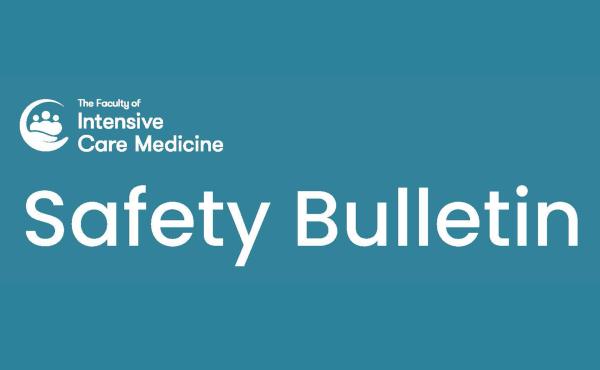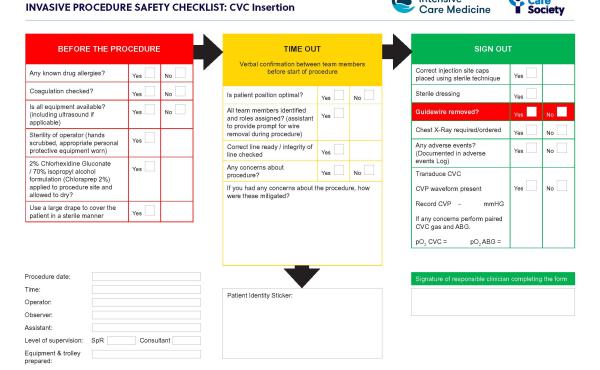FICM Safety Strategy
As part of our strategic aim to improve care for our patients and their relatives, the Faculty of Intensive Care Medicine is committed to the safety of our intensive care units.
We do this by:
Collaborating with and providing specialist opinion to the wider NHS community
Our partnerships with NHSE and the MRHA mean that both organisations have co-opted membership of our Professional Affairs and Safety Committee. We provide specialist ICM opinion to inform NHSE guidance and MHRA safety alerts. The review of incidents we undertake to produce the safety bulletin helps inform future NHSE and MHRA workstreams. We provide a stakeholder function for the National Institute for Health and Care Excellence (NICE) when guidance is of relevance to Intensive Care Medicine.
We also represent the ICM community via:
- SHOT (Serious Hazards of Transfusion) expert working group membership.
- NELA (National Emergency Laparotomy Audit) steering group membership.
- Co-opted membership of the Safe Anaesthesia Liaison Group (SALG)
- NCEPOD (National Confidential Enquiry into Patient Outcome and Death) steering group membership.
Communicating risk to the critical care community
Our Safety Bulletin is released three times a year. This bulletin highlights patient safety incidents that are rare or important, and those where the risk is perhaps something we accept in our usual practice.
Via the bulletin, we also communicate relevant safety news from the wider NHS.
Facilitating and promoting learning
Our training curriculum ‘Supporting excellence for a CCT in Intensive Care Medicine’ requires doctors in training to consider safe practice throughout their training. High Level Learning Outcomes (HiLOs) require doctors to address the patient safety and quality improvement domain (domain 6) of the GMC Generic Professional Capabilities Framework.
Our Education Sub-Committee provides guidance and resources to facilitate simulation with the aim of improving patient safety.
We would also like to highlight the NHS patient safety syllabus training programme, which is available via e-learning for healthcare. The Healthcare Safety Investigation Branch also provides free training to NHS staff in England, with a focus on those with patient safety and investigation roles.
Facilitating a quality improvement approach to patient safety
Guidelines for the Provision of Intensive Care Services (GPICS) is the definitive reference source for planning and delivery of UK Intensive Care Services. Standards and recommendations exist to improve delivery of care and therefore safety. GPICS 3 contains a specific patient safety chapter in the service development section
Guidelines and resources endorsed by FICM are an important means of improving patient safety in our intensive care units. Endorsement provides assurance that FICM has had direct involvement or representation.
We have worked with the Intensive Care Society to co-author a series of LoCSSIPs that can be adopted or modified for local use. They can be found here.
In this section
Do you have any questions?
If there’s any safety-related issues you would like to raise, please contact us.



